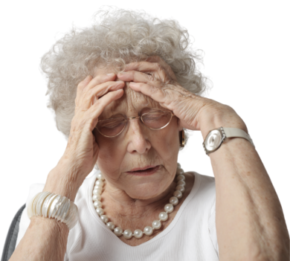
24 Oct 2023
Blog: Bullying Amongst Older Adults
Bullying is a pervasive issue often associated with childhood and adolescence, but it can affect people of all ages. This blog will shed light on the often-overlooked topic of bullying among older adults, focusing on the LGBTQ+ community. Bullying is not limited to schoolyards; it remains a concern later in life, affecting older adults’ emotional and mental well-being.
Understanding Bullying Among Older Adults
Bullying among older adults can take many forms, including verbal abuse, social exclusion, and even physical intimidation. This can happen in various settings, such as senior living facilities, retirement communities, and even within families. It is essential to acknowledge that older adults, including LGBTQ+ individuals, are not immune to bullying, and addressing this issue is critical for their well-being.
Unique Challenges Faced by LGBTQ+ Older Adults
LGBTQ+ older adults face unique challenges when it comes to bullying. Many grew up when being openly LGBTQ+ was stigmatized or even criminalized. They may have experienced discrimination throughout their lives, persisting into their later years. Some challenges include:
- Isolation: LGBTQ+ older adults may be more likely to experience social isolation, as they may have fewer family members or friends who accept and support their identity.
- Discrimination: They may face discrimination in healthcare settings, senior living communities, and even from their peers, which can lead to feelings of vulnerability.
- Lack of Legal Protections: In many places, there are limited legal protections against discrimination based on sexual orientation or gender identity, leaving LGBTQ+ older adults with fewer options for recourse.
Effects of Bullying on Older Adults
Bullying can severely affect older adults’ mental, emotional, and physical health. Some potential consequences of bullying include:
- Mental Health Issues: Bullying can lead to anxiety, depression, and post-traumatic stress disorder (PTSD).
- Physical Health Decline: Stress resulting from bullying can negatively impact physical health, potentially leading to chronic conditions.
- Social Isolation: Bullying can exacerbate feelings of loneliness and isolation, which can be particularly challenging for older adults who may already be experiencing these feelings.
- Deterioration of Quality of Life: The cumulative effects of bullying can significantly reduce an older adult’s overall quality of life.
Addressing Bullying Among Older Adults
To combat bullying among older adults, including LGBTQ+ individuals, we must take proactive steps to raise awareness and provide support:
- Education: Create awareness and educate older adults, caregivers, and staff at senior facilities about the consequences of bullying and the importance of acceptance and inclusion. Contact SAGECare to learn more about their “Preventing and Responding to Bullying” training.
- Support Groups: Establish support groups for LGBTQ+ older adults to create a safe space for sharing experiences and receiving emotional support.
- Policy Changes: Advocate for anti-discrimination policies within senior living facilities and healthcare settings that explicitly protect LGBTQ+ individuals.
- Mental Health Services: Ensure that mental health services are accessible to older adults, including those who have experienced bullying.
Bullying among older adults is a significant issue that needs more attention and action. LGBTQ+ older adults are particularly vulnerable due to their unique life experiences and challenges. By raising awareness, advocating for change, and providing support, we can work towards creating a more inclusive and accepting environment for older adults, regardless of their sexual orientation or gender identity. Ensuring everyone can enjoy their later years in a safe and welcoming community is essential.
SAGECare “Bullying Amongst Older Adults” Tip Sheet
